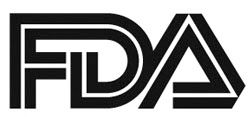FDA Grants IND Clearance to CAR T-cell Drug ICTCAR014 for R/R Non-Hodgkin Lymphoma
An Investigational New Drug application for chimeric antigen receptor-T cell agent, ICTCAR014, has been cleared by the FDA for treatment of patients with relapsed/refractory non-Hodgkin lymphoma, including those with PD-L1-positive tumors, according to a press release from Innovative Cellular Therapeutics.

An Investigational New Drug (IND) application for chimeric antigen receptor (CAR)-T cell agent, ICTCAR014, has been cleared by the FDA for treatment of patients with relapsed/refractory non-Hodgkin lymphoma, including those with PD-L1-positive tumors, according to a press release from Innovative Cellular Therapeutics (ICT).
In response to the clearance, the company plans to initiate a United States-based clinical trial in this patient population in 2020, which will be led by David L. Porter, MD, director of Cell Therapy and Transplantation, and Jodi Fisher Horowitz Professor in Leukemia Care Excellence at the Abramson Cancer Center, University of Pennsylvania. This will be the first clinical trial for ICTCAR014.
“The clearance of our first United States IND is a significant step as we expand our U.S. activities,” said Larry (Lei) Xiao, PhD, chairman and chief executive officer at ICT. “Building upon the encouraging data presented in November at the Society for Immunotherapy of Cancer (SITC), which showed objective response rate (ORR) of over 92%, the ICTCAR014 program highlights our accelerated and de-risked approach for developing novel immunotherapies. Our development strategy translates rapid clinical proof-of-concept trials in China into United States. and global development programs with the goal of regulatory approval through expedited review pathways. We look forward to advancing ICTCAR014 into our first United States clinical trial.”
In November 2019, data were presented at the SITC 34thAnnual Meeting. The data showed a 92.3 % ORR in the initial 13 patients treated with ICTCAR014. Of those ORRs, 53.8% were complete remissions and 38.5% were partial remissions. The best ORR observed was 100%. Additionally, treatment with ICTCAR014 resulted in significant tumor shrinkage.The toxicities observed with the agent were limited.1
From these data, the investigators concluded that ICTCAR014 achieved a significant anti-bulky lymphoma response while causing limited and tolerated cytokine release syndrome, and central nervous system toxicity. They also determined that dominant-negative PD-1 molecules have strong potential to persist in CAR T cell therapy in patients and to improve efficacy. Additionally, the investigators believe that the drug may be beneficial as a platform technology and used together with other cellular immunotherapies such as T cell receptor technology and tumor infiltrating lymphocytes.2
Study investigators transduced CD3 T cells in patients the CAR lentivirus vector designed by ICT which consisted of humanized CD19-specific single-chain variable fragment (scFv), a 4-1BB costimulatory domain, and a CD3ζ signaling domain. Post-infusion, investigators collected peripheral blood samples to detect the expansion and cytokine release of CART cells. These response tests were performed at 1 month, 3 months, and 6 months.2
ICTCAR014 is already considered to be a lead agent in China and the United States development of the drug includes malignancies like B-cell acute lymphoblastic leukemia, in addition to relapsed/refractory non-Hodgkin lymphoma.1
References
- Innovative Cellular Therapeutics Announces FDA Clearance of IND for its Dominant Negative PD-1 “Armored” Next Generation CAR-T Cell Therapy [press release]. Rockville, Maryland: Innovative Cellular Therapeutics; December 4, 2019.https://bit.ly/2Pd8tj9. Accessed December 4, 2019.
- Pu CF and Xiao L. Dominant negative PD1 armored CART cells induce remission in relapsed or refractory Non-Hodgkin Lymphoma (NHL) patients. Presented at the Society from Immunotherapy of Cancer 34thAnnual Meeting; November 610, 2019; National Harbor, Maryland. Abstract O25.